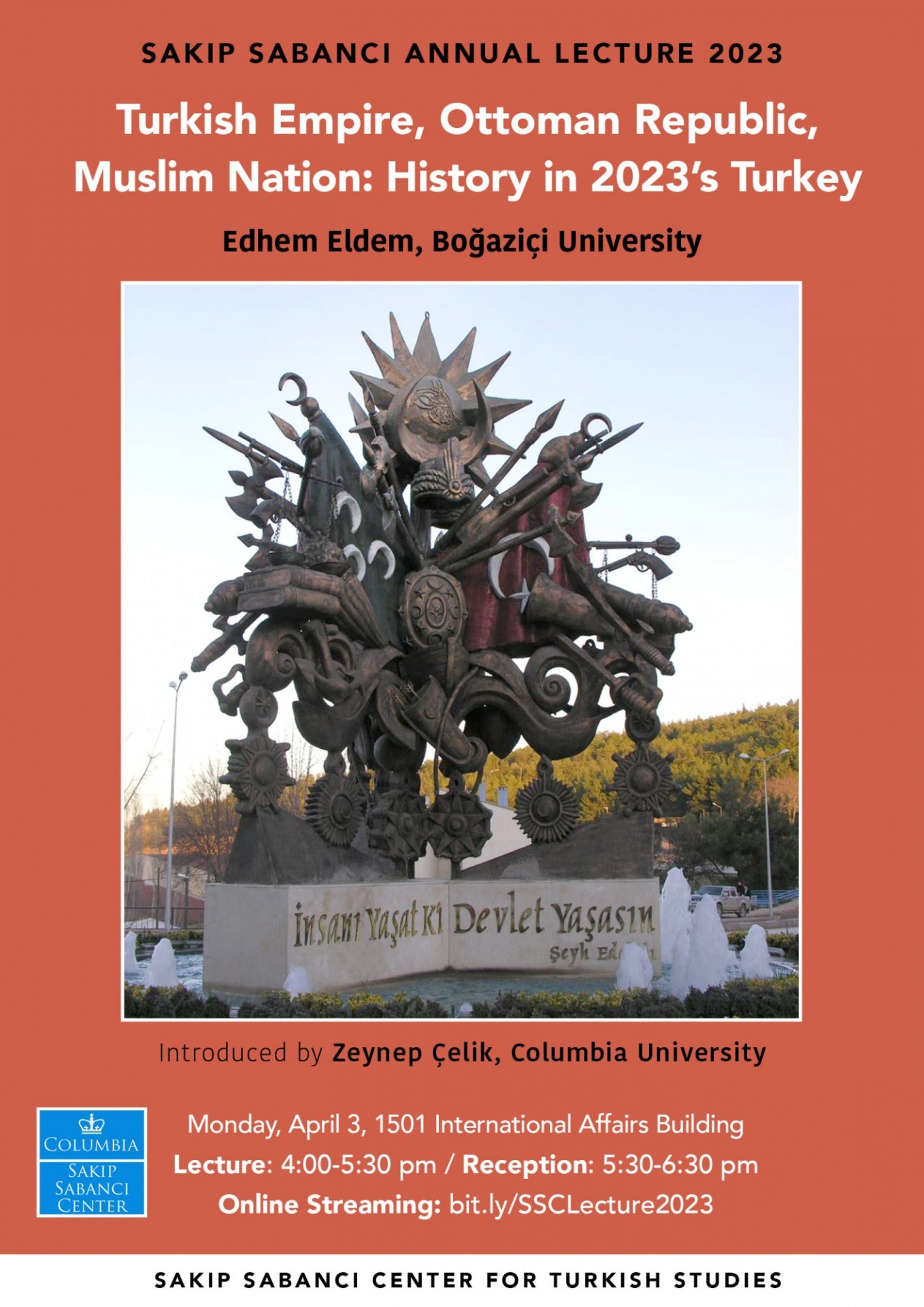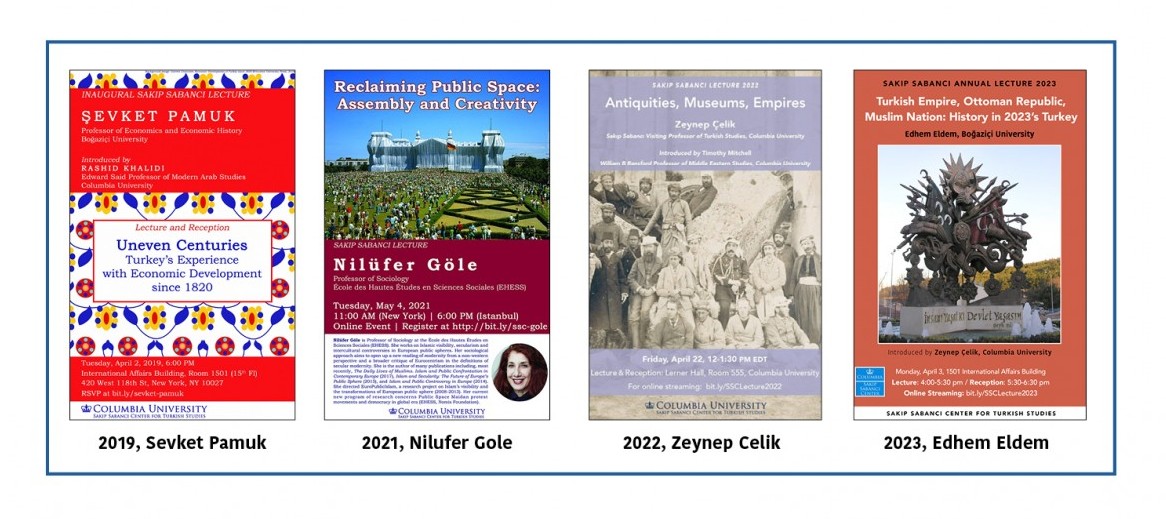Sakip Sabanci Annual Lecture Series
Please click here to watch the recording of the lecture.
Uneven Centuries: Turkey’s Experience with Economic Development since 1820
Sakip Sabanci Inaugural Lecture by Sevket Pamuk, Professor of Economics and Economic History, Boğaziçi University
Introduced by Rashid Khalidi Edward Said Professor of Modern Arab Studies, Columbia University
About the Speaker
Şevket Pamuk is Professor of Economics and Economic History at Boğaziçi (Bosphorus) University, Istanbul. He graduated from Yale University and obtained his PhD in Economics at University of California, Berkeley. Pamuk is the author of many books and journal articles on Ottoman, Middle East, Turkish and European economic history, including The Ottoman Empire and European Capitalism, 1820-1913 (Cambridge Univ Press), A Monetary History of the Ottoman Empire (Cambridge Univ Press) and most recently of Uneven Centuries: Economic History of Turkey since 1820 (Princeton Univ Press, 2018). He was Professor and Chair in Contemporary Turkish Studies at the London School of Economics from 2008 through 2013. Pamuk was President of European Historical Economics Society (2003-2005), President of Asian Historical Economics Society (2012-2014), Editor of European Review of Economic History (2011-2014) and is a member of Academia Europea and Science Academy, Istanbul.
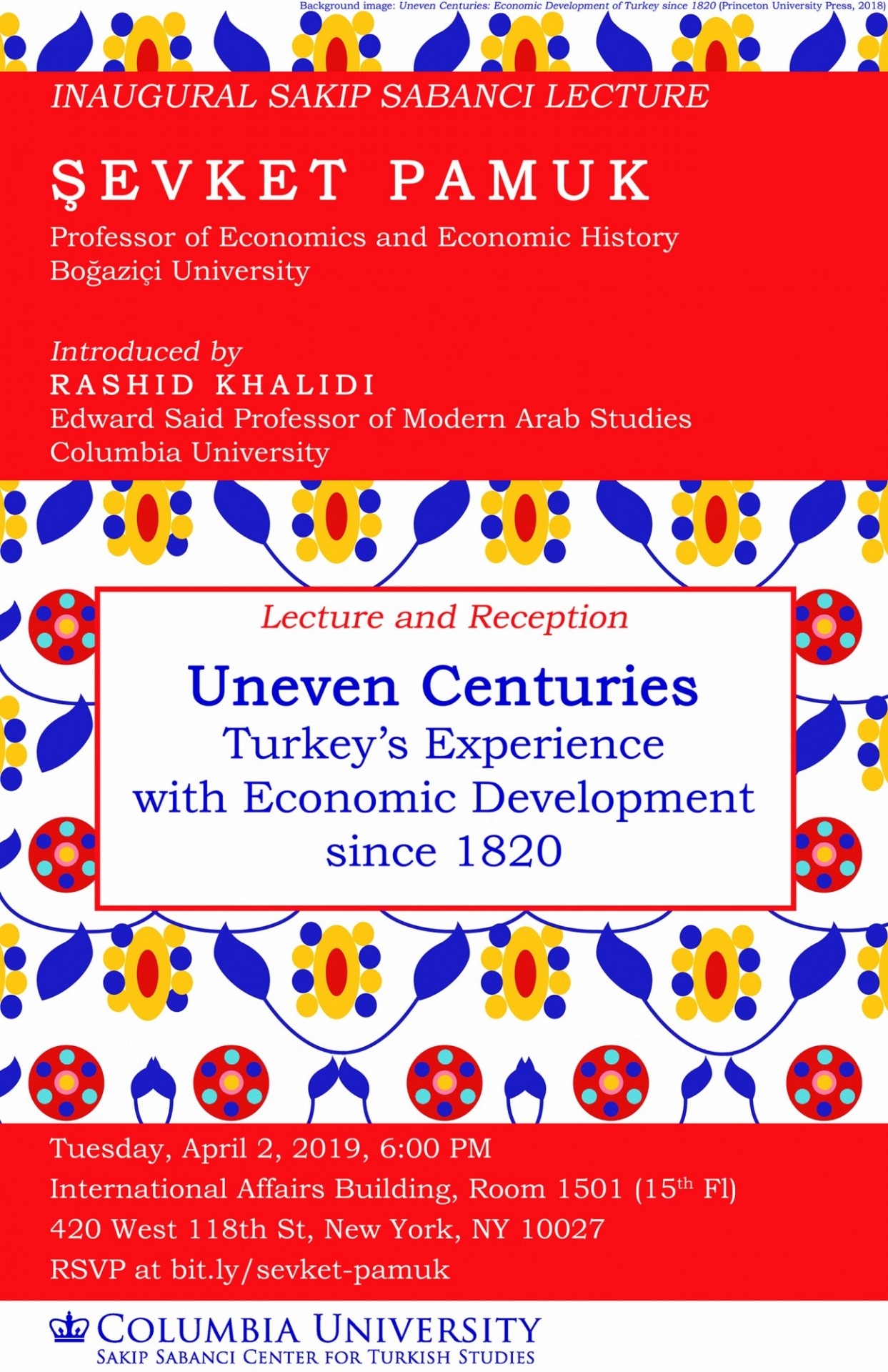
Reclaiming Public Space: Assembly and Creativity
Sakıp Sabancı Lecture 2021 by Nilüfer Göle, Professor of Sociology, École des Hautes Études en Sciences Sociales.
This event will take place on Tuesday, May 4, 2021, starting at 11:00 AM (New York) | 6:00 PM (Istanbul).
About the Speaker
Nilüfer Göle is Professor of Sociology at the École des Hautes Études en Sciences Sociales (EHESS). She works on Islamic visibility, secularism and intercultural controversies in European public spheres. Her sociological approach aims to open up a new reading of modernity from a non-western perspective and a broader critique of Eurocentrism in the detinitions o secular modernity. She is the author of many publications including, most recently, The Daily Lives of Muslims. Islam and Public Confrontation in Contemporary Europe (2017), Islam and Secularity: The Future of Europe's Public Sphere (2015), and Islam and Public Controversy in Europe (2014). She directed EuroPublicIslam, a research project on Islam's visibility and the transformations of European public sphere (2008-2013). Her current new program of research concerns Public Space Maidan protest movements and democracy in global era (HESS, Nomis Foundation).
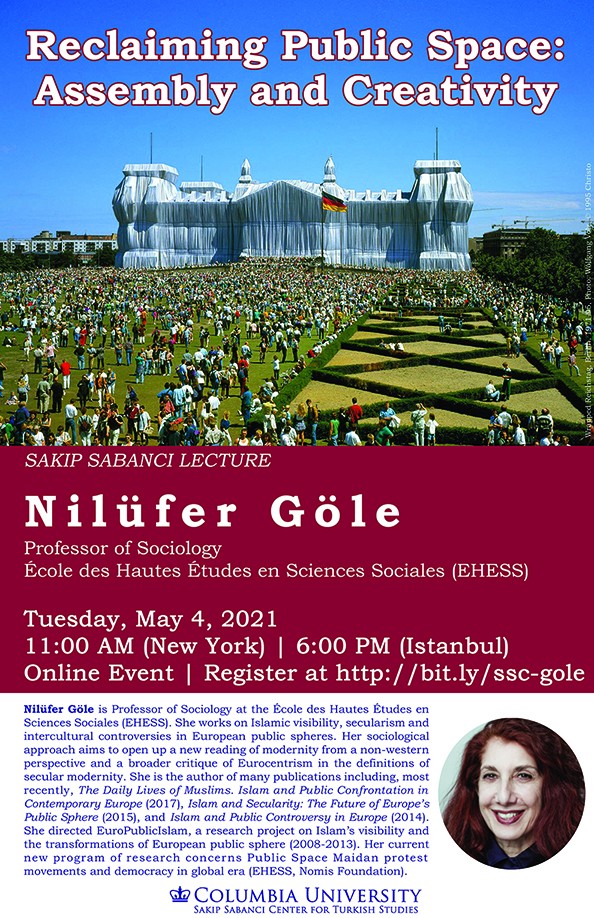
Please click here to watch the recording of the lecture.
Antiquities, Museums, Empires
Sakip Sabanci Annual Lecture 2022 by Zeynep Çelik, Sakıp Sabancı Visiting Professor of Turkish Studies, Columbia University
Introduced by
Timothy Mitchell
William B Ransford Professor of Middle Eastern Studies, Columbia University
Friday, April 22, 12-1:30 PM EDT
Lecture & Reception: Lerner Hall, Room 555, Columbia University
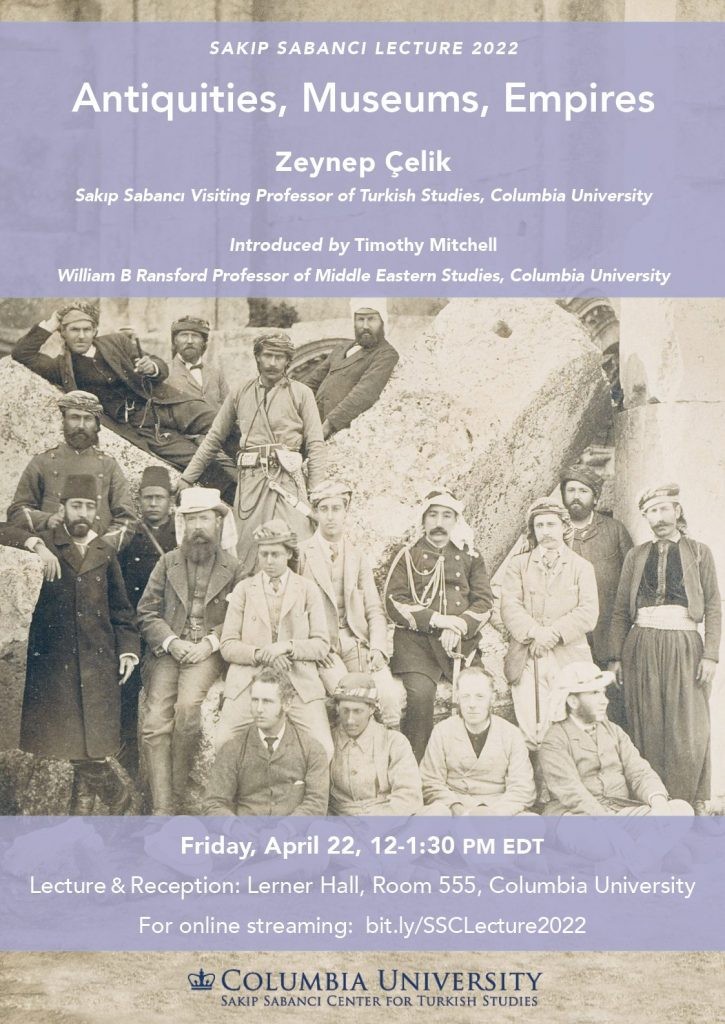
Please click here to watch the recording of the lecture.
Turkish Empire, Ottoman Republic, Muslim Nation: History in 2023’s Turkey
Sakıp Sabancı Annual Lecture by Edhem Eldem, Professor of History, Boğaziçi University
Introduced by Zeynep Çelik, Sakıp Sabancı Visiting Professor of Turkish Studies, Columbia University
The centennial of the Republic may be a good occasion to propose an overall assessment of the place, role, and state of history in Turkey today. While the scholarly discipline has made much progress and reached a remarkable degree of sophistication in the past decades, constant and growing pressure has turned history into fodder for political and ideological discourse across the board. Half-truths, false notions, muddled concepts, superficial knowledge, facile correlations, wishful thinking, lingering taboos, chronic denial… This long list of symptoms suggests that Turkey is suffering from cliopathy and cliomania: it is both sick and obsessed with history. This is particularly true of Ottoman history, one of the prime concerns of political, ideological, and cultural constructs today. Its appeal to political actors and to the public alike is obvious: it allows for an amalgamation of concepts and labels in ways that the title of this lecture tries to suggest. While historians may rightly lament the harm done to their discipline, the real challenge they have to face is to try to understand to what extent these abuses may actually rest on very complex and largely unresolved historical issues.
About the speaker
Edhem Eldem teaches in the Department of History at Boğaziçi University, Istanbul. He has also taught at Berkeley, Harvard, Columbia, at the École des Hautes Études en Sciences Sociales and has held the International Chair of Turkish and Ottoman Studies at the Collège de France. Among his fields of interest are the Levant trade in the eighteenth century, Ottoman funerary epigraphy, the development of an urban bourgeoisie in Istanbul, the history of the Ottoman Bank, the history of archaeology in the Ottoman Empire, late-nineteenth-century Ottoman first-person narratives and biographies, the history of photography in the Ottoman Empire, the dynamics of Westernization and Orientalism.
His publications include: French Trade in Istanbul in the Eighteenth Century (1999); A History of the Ottoman Bank (1999); The Ottoman City between East and West: Aleppo, Izmir and Istanbul (1999, with D. Goffman and B. Masters); Pride and Privilege. A History of Ottoman Orders, Medals and Decorations (2004); Death in Istanbul. Death and its Rituals in Ottoman-Islamic Culture (2005); Consuming the Orient (2007); Un Ottoman en Orient. Osman Hamdi Bey en Irak (1869-1871)(2010); Le voyage à Nemrud Dağı d’Osman Hamdi Bey et Osgan Efendi (2010); Scramble for the Past: A Story of Archaeology in the Ottoman Empire, 1753-1914 (2011, with Z. Bahrani and Z. Çelik); Camera Ottomana. Photography and Modernity in the Ottoman Empire, 1870-1914 (2015, with Z. Çelik); L’Empire ottoman et la Turquie face à l’Occident (2018); L’Alhambra. À la croisée des histoires (2021); L’Empire ottoman (2022).
Monday, April 3, 1501 International Affairs Building
Lecture: 4:00-5:30 pm / Reception: 5:30-6:30 pm
